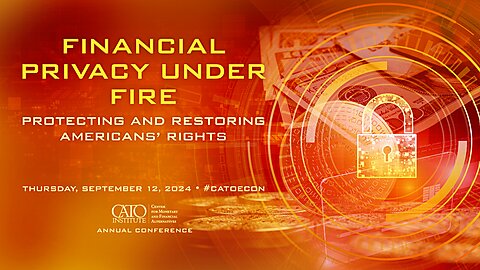Jennifer J. Schulp
American financial privacy has been in steady decline for more than 50 years. Regulatory frameworks, such as the Bank Secrecy Act and the Securities and Exchange Commission’s Consolidated Audit Trail, establish government surveillance of Americans’ financial transactions. As financial services have become increasingly digitized—and as the thresholds for required reporting to the government have remained locked in time—the amount of financial records to which the government enjoys easy access has grown exponentially. And proposals for a central bank digital currency, which involve the government becoming more intimately involved in Americans’ use of money, have the potential to further erode the ability to transact without government surveillance.
There has been a flurry of recent congressional activity around financial privacy, including efforts to reform the Bank Secrecy Act, eliminate the collection of investors’ personal information in the Consolidated Audit Trail, and prohibit central bank digital currencies. Policymakers in both parties should focus on these important issues. Easy government access to financial data poses risks to everyone—not just those with something to hide.
Questions of financial privacy shouldn’t be shunted to the side.
Does financial convenience have to come at the cost of financial privacy? Does the Constitution provide the protections needed to limit government access to financial information? Can decentralization provide privacy-protecting solutions?
Join us on September 12 to consider these questions and more when Cato’s Center for Monetary and Financial Alternatives hosts Financial Privacy under Fire: Protecting and Restoring Americans’ Rights. This conference will feature a fireside chat with House Financial Services Committee Chairman Patrick McHenry. It will also bring together experts and policymakers to discuss important questions about the state of financial privacy in the United States.
Our program includes:
9:30 — 9:35 AM: Opening Remarks by Norbert Michel, Vice President and Director, Cato’s Center for Monetary and Financial Alternatives
9:35 — 10:45 AM: Panel Discussion on Financial Privacy and the Constitution
Morgan Cloud, Emory University School of Law
Stephen Henderson, University of Oklahoma College of Law
Rob Johnson, Institute for Justice
Jumana Musa, National Association of Criminal Defense Lawyers
Brent Skorup, Legal Fellow, Cato’s Robert A. Levy Center for Constitutional Studies (moderator)
11:00 AM — 12:15 PM: Panel Discussion on Evaluating Central Bank Digital Currencies
Robert Bench, Radius
William Luther, Florida Atlantic University
Natalie Smolenski, Bitcoin Policy Institute
Jay Stanley, American Civil Liberties Union
Victoria Guida, Politico (moderator)
12:45 — 1:55 PM: Panel Discussion on Bank Secrecy Act Reform
Katherine Kirkpatrick Bos, StarkWare
Gregory Lisa, Hogan Lovells
Norbert Michel, Vice President and Director, Cato’s Center for Monetary and Financial Alternatives
Lanier Saperstein, Dorsey & Whitney LLP
Claire Williams, American Banker (moderator)
2:00 — 2:30 PM: Fireside chat with Representative Patrick McHenry, Chairman of the House Financial Services Committee, moderated by Jennifer Schulp, Director of Financial Regulation Studies, Cato’s Center for Monetary and Financial Alternatives
2:45 — 3:55 PM: Panel Discussion on Decentralization and Financial Privacy
Paul Brigner, Coinbase Institute
Ahmed Ghappour, Espresso Systems
Ian Miers, University of Maryland
Miller Whitehouse-Levine, DeFi Education Fund
Nikhilesh De, CoinDesk (moderator)
Register here to attend in person or online to join this important conversation.


























